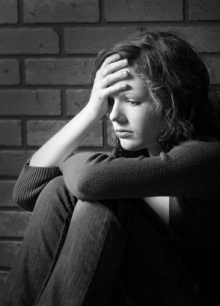Published: September 25, 2009
At the World Congress on Psychosomatic Medicine in Torino, Italy, Carol Ryff, Professor of Psychology at the University of Wisconsin, has described how more than simply feeling happy, it is the personal approach to psychological well-being that matters.
Increasingly, researchers attend to both positive and negative aspects of mental health. Such distinctions call for clarification of whether psychological well-being and ill-being comprise opposite ends of a bipolar continuum, or are best construed as separate, independent dimensions of mental health. Biology can help resolve this query – bipolarity predicts ‘mirrored’ biological correlates (i.e. well-being and ill-being correlate similarly with biomarkers, but show opposite directional signs), whereas independence predicts ‘distinct’ biological correlates (i.e. well-being and ill-being have different biological signatures). Multiple aspects of psychological well-being (eudaimonic, hedonic) and ill-being (depression, anxiety, anger) were assessed in a sample of aging women (n = 135, mean age = 74) on whom diverse neuroendocrine (salivary cortisol, epinephrine, norepinephrine, DHEA-S) and cardiovascular factors (weight, waist-hip ratio, systolic and diastolic blood pressure, HDL cholesterol, total/HDL cholesterol, glycosylated hemoglobin) were also measured. Measures of psychological well-being and ill-being were significantly linked with numerous biomarkers, with some associations being more strongly evident for respondents aged 75+. Outcomes for seven biomarkers supported the distinct hypothesis, while findings for only two biomarkers supported the mirrored hypothesis. This research adds to the growing literature on how psychological well-being and mental maladjustment are instantiated in biology. Population-based inquiries and challenge studies constitute important future directions.
Prof. Carol Ryff also illustrated the findings of an Italian group headed by Professor Fava to point to the fact that psychological well-being can be learned and that increasing psychological well-being may improve long-term outcome of depression.
Source: Psychotherapy and Psychosomatics: Carol D. Ryff, Gayle Dienberg Love, Heather L. Urry, Daniel Muller, Melissa A. Rosenkranz, Elliot M. Friedman, Richard J. Davidson, Burton Singer. Psychological Well-Being and Ill-Being: Do They Have Distinct or Mirrored Biological Correlates? Psychother Psychosom 2006;75:85-95
Published: September 24, 2009
 Dr. Henry Marsh is one of England’s foremost brain surgeons, a pioneer in his field and respected throughout the world. Driven to help those who are least likely to receive the neurosurgery they need to survive, Marsh has been going to Ukraine’s capital, Kyiv, for more than 17 years. Shot over three chaotic weeks in the winter of 2007, The English Surgeon follows Marsh and Ukrainian colleague, Dr. Igor Kurilets as they work endless hours in clinics full of desperately ill people. You can watch The English Surgeon online at PBS until October the 9th.
Dr. Henry Marsh is one of England’s foremost brain surgeons, a pioneer in his field and respected throughout the world. Driven to help those who are least likely to receive the neurosurgery they need to survive, Marsh has been going to Ukraine’s capital, Kyiv, for more than 17 years. Shot over three chaotic weeks in the winter of 2007, The English Surgeon follows Marsh and Ukrainian colleague, Dr. Igor Kurilets as they work endless hours in clinics full of desperately ill people. You can watch The English Surgeon online at PBS until October the 9th.
Source: PBS hat tip to Mind Hacks
Published: September 24, 2009
In the last decade, the clinician-patient relationship has become more of a partnership. There is growing interest in shared decision-making (SDM) in which the clinician and patient go through all phases of the decision-making process together, share treatment preferences, and reach an agreement on treatment choice. At the World Congress on Psychosomatic Medicine which opened today in Torino, Tom Sensky, Professor of Psychiatry at the Imperial College in London, raised some very controversial issues as to the participation of patients in medical decision. [continue reading…]
Published: September 24, 2009

Image: iStockphoto
It might be obvious to many, and reading this particular press release my first reaction was …OK… it doesn’t take a rocket scientist to figure out that adolescent depression and anxiety disorders are two distinct psychiatric disorders and are classified thus in the revised fourth edition of the DSM-IV. However it has been suggested that these two disorders be given a join classification in the DSM-V. Dr. William W. Hale III(a researcher of the Langeveld Institute for the Study of Education and Development in Childhood and Adolescence at Utrecht University) and his colleagues completed a five-year study which concluded that while adolescent anxiety and depression were strongly related to one another, adolescent depression and anxiety disorder symptoms are in fact best classified as two distinct disorders.As such Hale argues that the classification of adolescent depression and anxiety disorders be preserved in the DSM-V
This publication will appear in the October issue of The Journal of Child Psychology and Psychiatry and can be found online at : http://www3.interscience.wiley.com/cgibin/fulltext/122473904/PDFSTART




